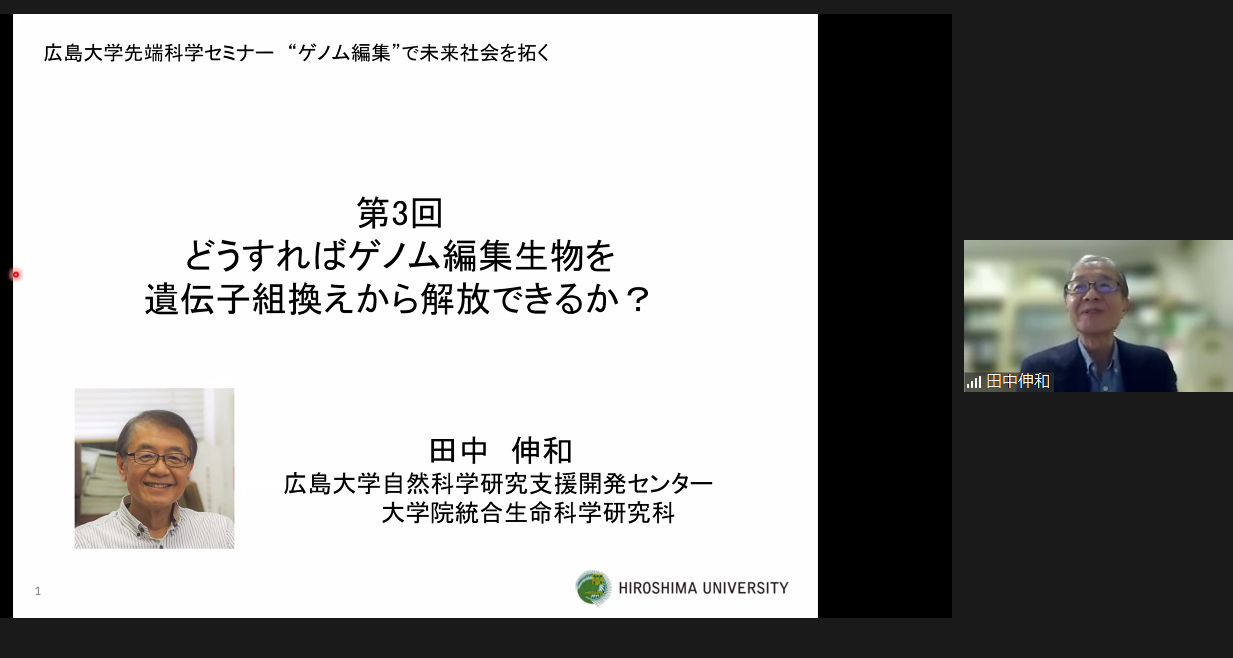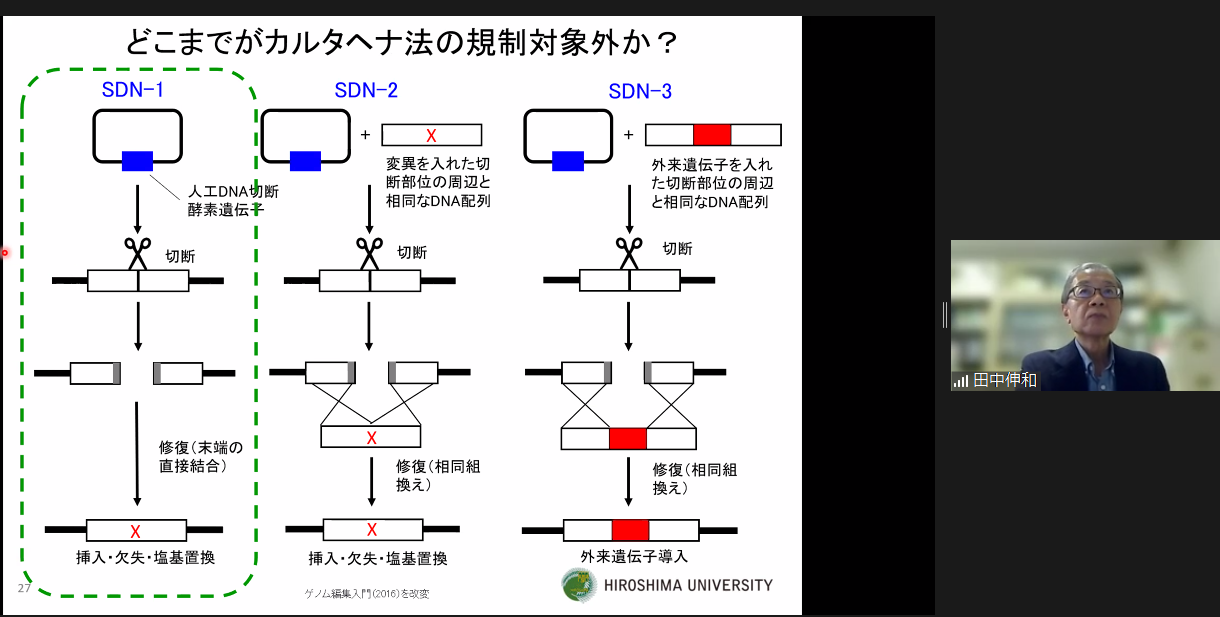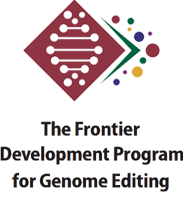 Doctoral Program for World-leading Innovative & Smart Education
Doctoral Program for World-leading Innovative & Smart Education
Activity
Third Seminar in Hiroshima University's Advanced Science Series Held, on the Theme of "Developing a Future Society with Genome Editing"
October 28, 2021
On October 28, 2021, Hiroshima University held the third seminar in the advanced science seminar series on the theme of "Developing a Future Society with Genome Editing."
The third seminar featured a lecture entitled "How Can Genome-Edited Organisms Be Released from Genetic Modification?" by Prof. TANAKA Nobukazu of the Graduate School of Integrated Sciences for Life, Natural Science Center for Basic Research and Development.
Prof. Tanaka started the lecture by discussing the history of the Cartagena Act, which regulates genetically modified organisms, and the organisms subject to the regulation. He went on to explain his research and differences between the definitions of genetically modified organisms and genome edited organisms. He also explained that any organism for which nucleic acid is used in the genome editing process is subject to the Cartagena Act, but if protein is used, or even if nucleic acid is used, if it is confirmed that no nucleic acid remains in the organism, such organisms are not subject to the Act. He then explained methods for checking the presence or absence of remnants of inserted nucleic acid, and introduced cases of tomato and red sea bream, for which general use (use in the open system) has been approved. He also opined on future prospects; if the procedures for checking the presence or absence of nucleic acid remnants are standardized with the progress of disclosure of cases, the number of notifications of genome-edited products for use in the open system will increase, and it will become necessary to propose standards that allow genome-edited products to be exempt from the Cartagena Act.
In Hiroshima University's advanced science seminar series "Developing a Future Society with Genome Editing," speakers mainly
from Hiroshima University in charge of the Frontier Development Program for Genome Editing (selected as a Doctoral Program for
World-leading Innovative & Smart Education) introduce their efforts related to genome-editing technology-one of Hiroshima University's
strengths-and give clear explanations of the present status and future of the technology. The series is planned to comprise four seminars.
Details about the next and subsequent seminars will be given on the website of the Frontier Development Program for Genome Editing and through
other media. We look forward to having many people attend the seminars.
 |
 |
